Assistant Professor
Plant Molecular and Cellular Biology Laboratory

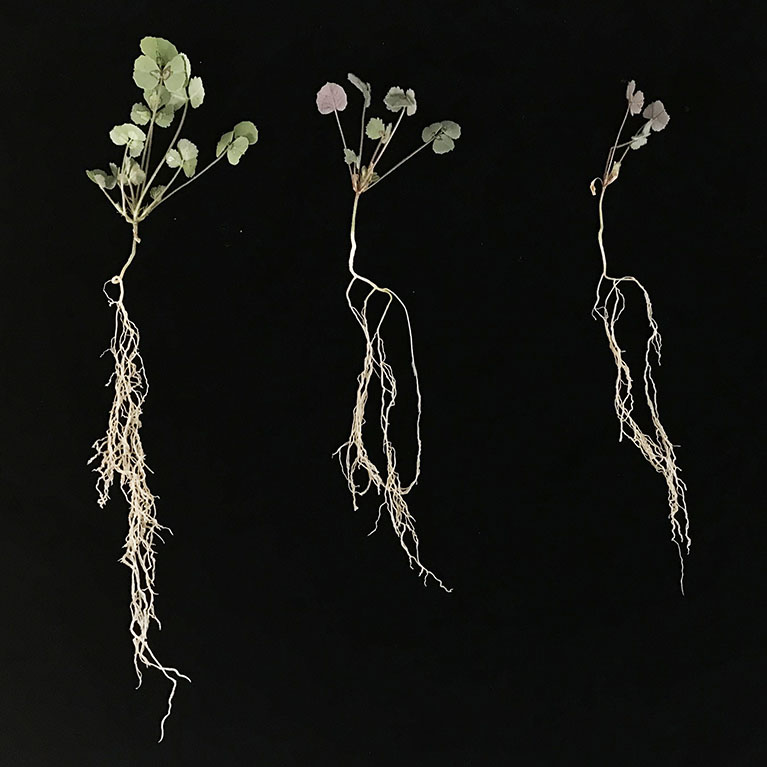
Most terrestrial plants, including many crops, engage in mutually beneficial relationships with soil microbes—like arbuscular mycorrhizal fungi—that provide nutrients in exchange for carbon. Leveraging these microbes in agriculture has great potential to reduce our reliance on chemical fertilizers and make agricultural production more sustainable. To accomplish this, scientists must understand how the symbiotic relationship between plants and arbuscular mycorrhizal fungi is controlled by plant and fungal genes, as well as the environment.
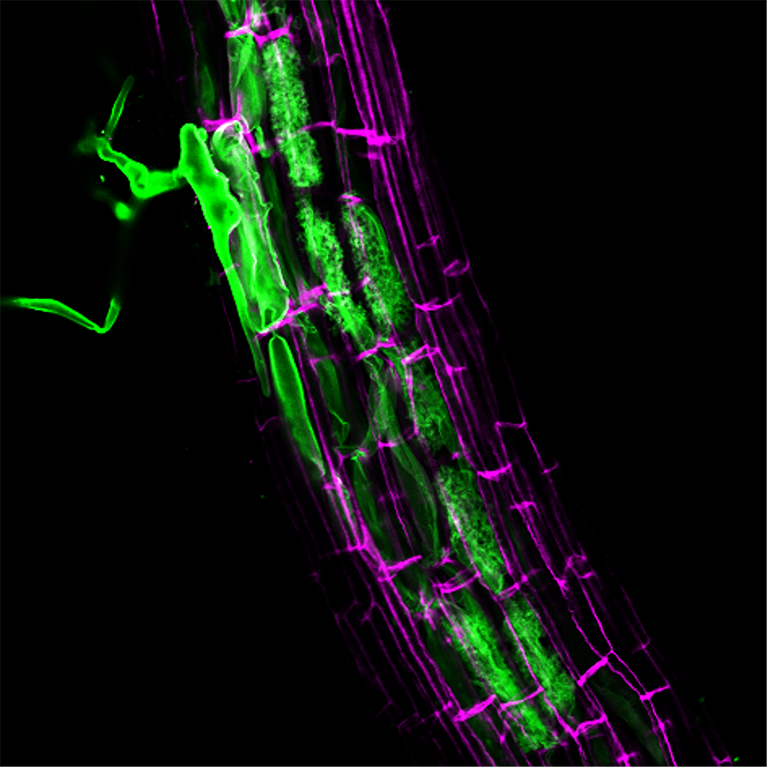
Mueller works to uncover the genetic basis of how plants initiate and maintain symbiosis with arbuscular mycorrhizal fungi. To do so, she looks at 1) the molecular signaling pathways that allow plants to perceive and transmit information about fungus presence and quality, 2) how these long- and short-distance signals are integrated with other physiological signals to ensure that carbon cost and nutrient uptake are optimally balanced, and 3) the genetic factors that determine symbiotic success in a changing environment. Mueller hopes to use what she learns to engineer crops that are optimal hosts for arbuscular mycorrhizal fungi, allowing them to take up more nutrients or transfer more carbon underground to their roots and microbial partners.
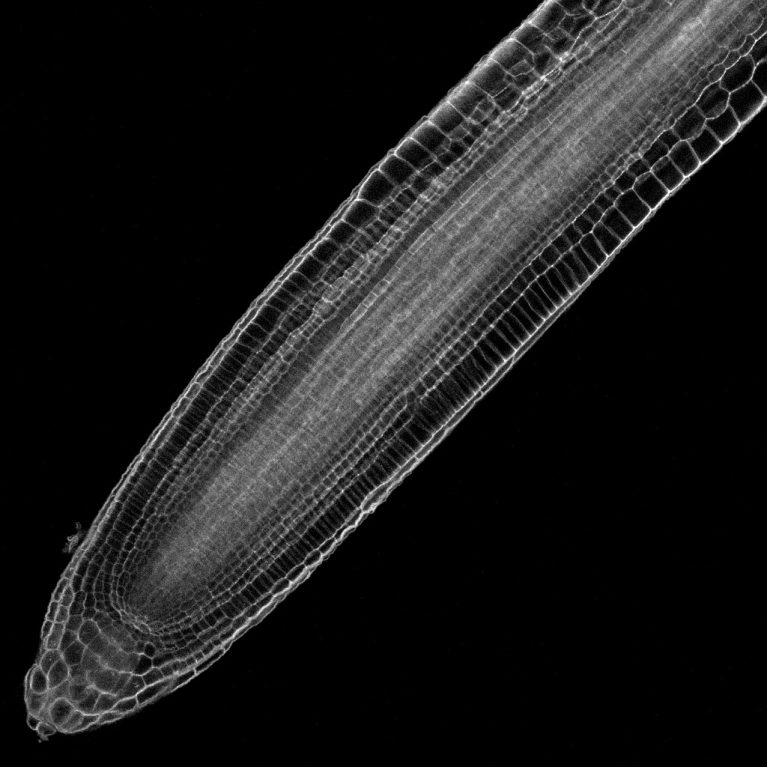
Mueller described the molecular mechanism of arbuscular mycorrhizal symbiosis autoregulation, which allows plants to regulate the number of fungi in their roots and may help plants maintain an optimal balance between giving carbon and receiving nutrition from a fungus.
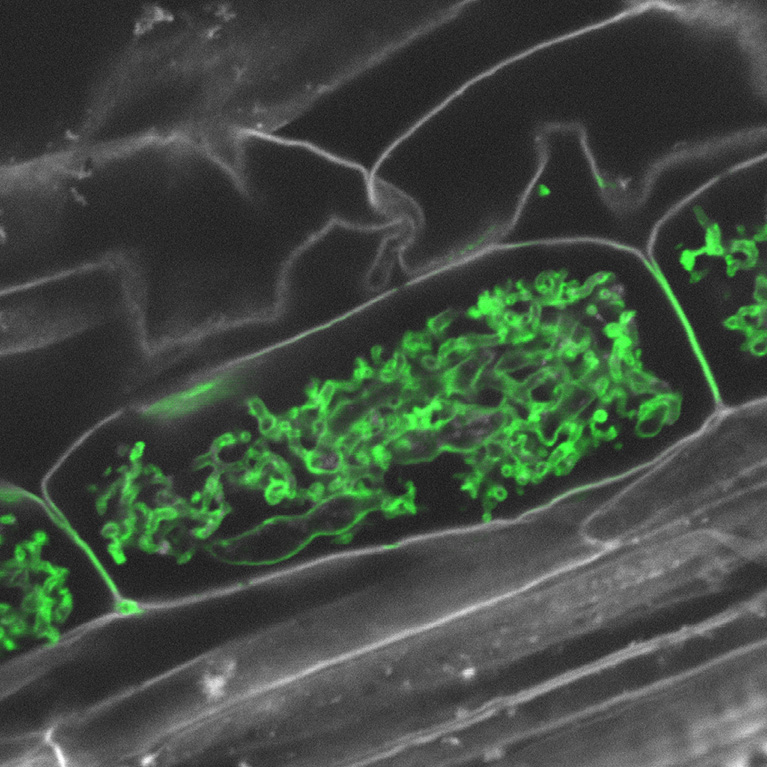
Mueller contributed to a better understanding of the transcriptional networks that govern the establishment of fungal feeding structures in plant roots, finding that transcriptional regulators can be manipulated to increase the symbiotic capacities of plants.
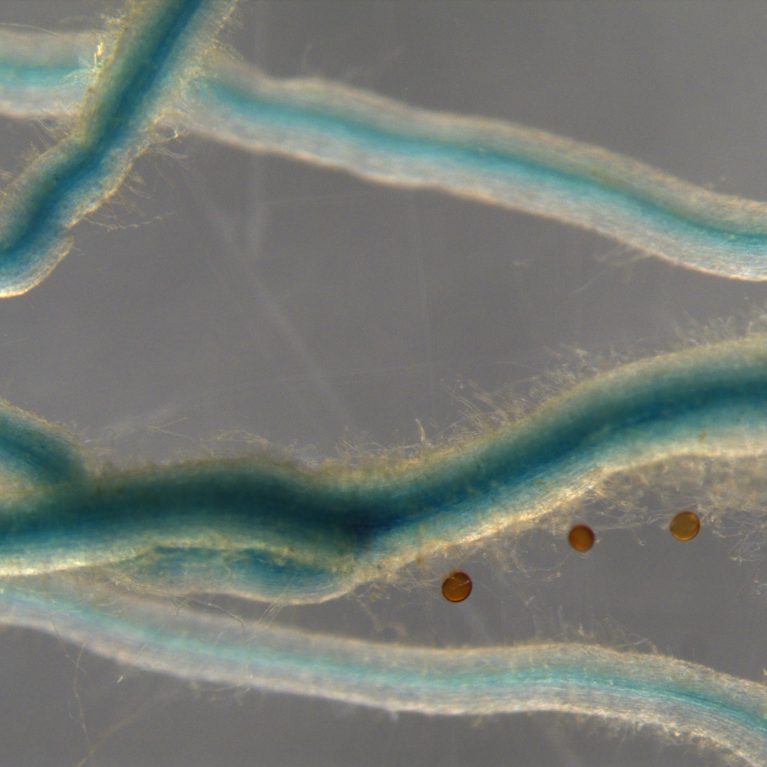
Mueller identified different “supermycorrhizal” plant lines, which harbor more arbuscular mycorrhizal fungi in their roots. Such genotypes can be utilized to enhance plant nutrition and improve fungal carbon sequestration in soils.
BSc/MSc, Biology, University of Tuebingen, Germany
PhD, University of Zurich, Switzerland
Postdoctoral Fellow, Boyce Thompson Institute, Cornell University, Ithaca, NY